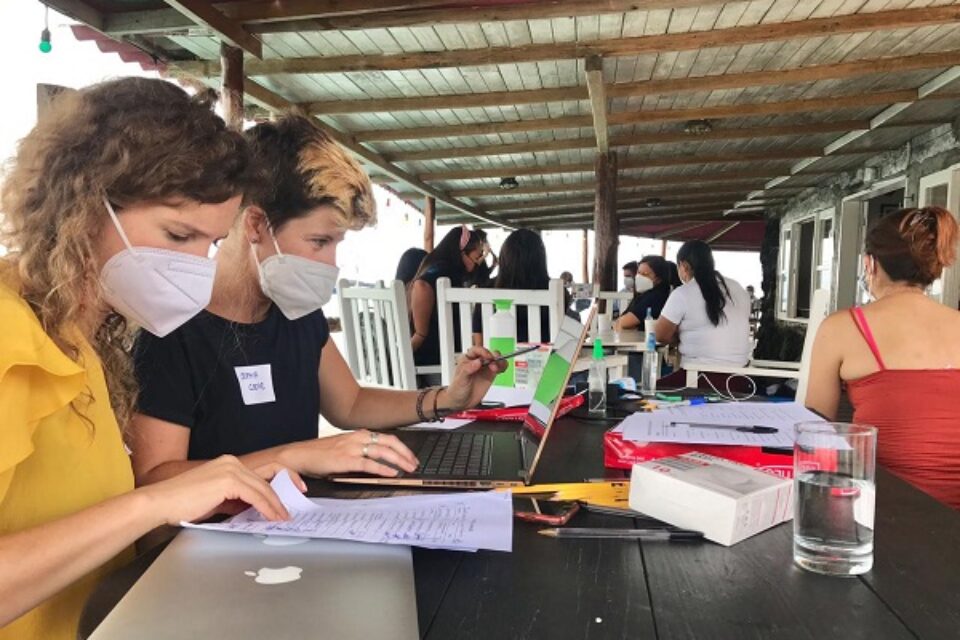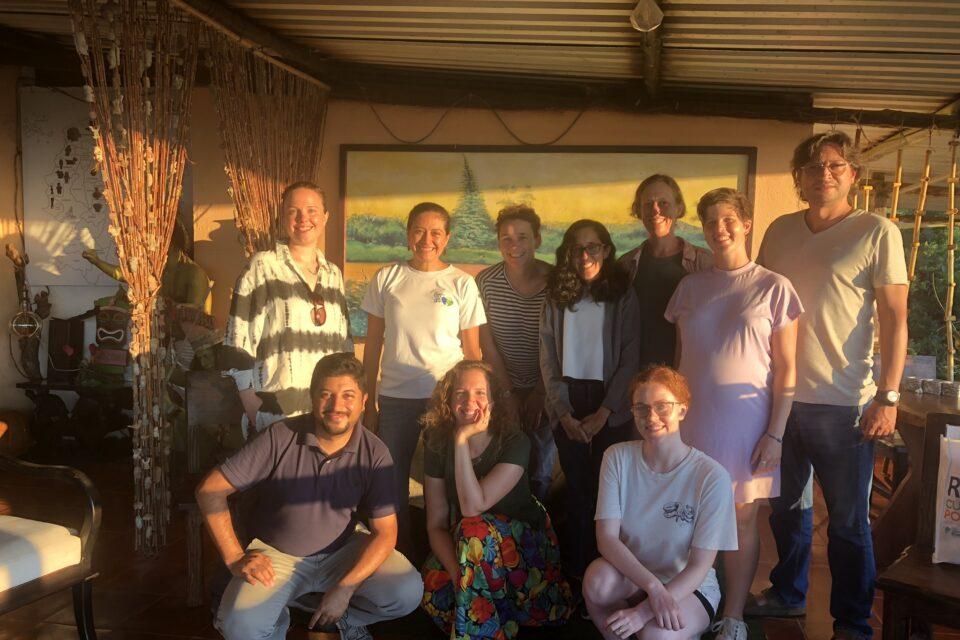

2015 Galapagos Symposium: Sustainable Development
Sustainable use of resources, efficient waste management, low-impact tourism and responsible building practices are all important for the continued conservation of Galapagos.
Through the Galapagos Future Fund we work with local stakeholders to improve the efficiency and sustainability of the growing human population on the Islands.
Sustainable Development
During the 2015 Galapagos Symposium, held in San Francisco in June, Michael Jackson from St. Michaels University School and Galapagos Conservancy Canada, spoke about tourism in the Galapagos over the past 35 years.
In 1980, the total number of visitors to the Galapagos Islands was only 18,000 per year. That number now exceeds over 200,000 visitors per year. Over a 35 year period of visiting the islands, Jackson noticed several changes.
The nature of tourism and the types of tourists visiting the islands has changed over this time with people now visiting with the idea of checking another item off their bucket list, rather than because of a deep-seated love for the natural world. The number of visitor sites has changed over time with several new sites being opened and some being closed. Some sites have had varying degrees of degradation overtime while others appear virtually unchanged. In general visitor sites are busier, but are so far well managed, however with increasing numbers of tourists there is a risk of future negative impacts.
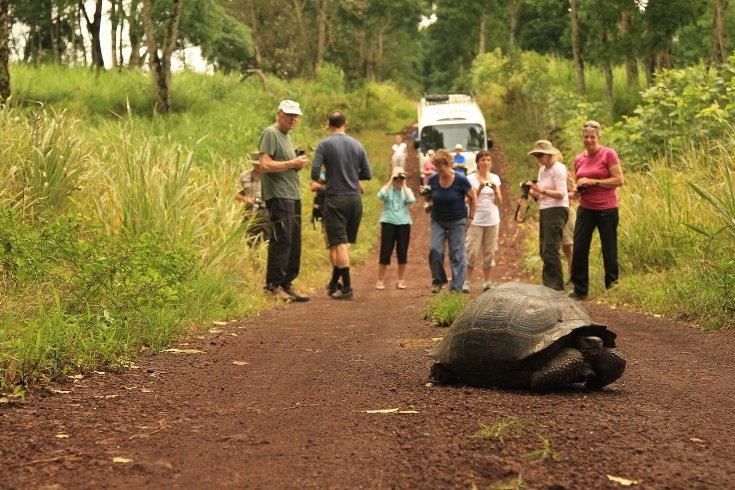
Understanding changes to tourism levels as well as developing park management strategies for mitigating the impacts of larger numbers are important. Tourism is essential to the conservation and management of the park and it is important to understand how tourism has changed and how it impacts the Galapagos natural environment.
The Galapagos Conservation Trust is currently working on trying to engage with people before the visit the Galapagos Islands to offer advice on preventing any negative impacts from their visit. We are also developing new projects on tourism and sustainable development to further research the impacts of tourism and to find effective ways of mitigating these impacts.
Without a considered and coordinated approach to development in Galapagos, the rapidly increasing local population and tourism industry may cause irreversible damage to the Archipelago’s habitats. But with your support, we can help to ensure that future development is kept in balance with sustainability and conservation values. Please make a donation to the Galapagos Future Fund and in turn make a difference to the future of the Galapagos.
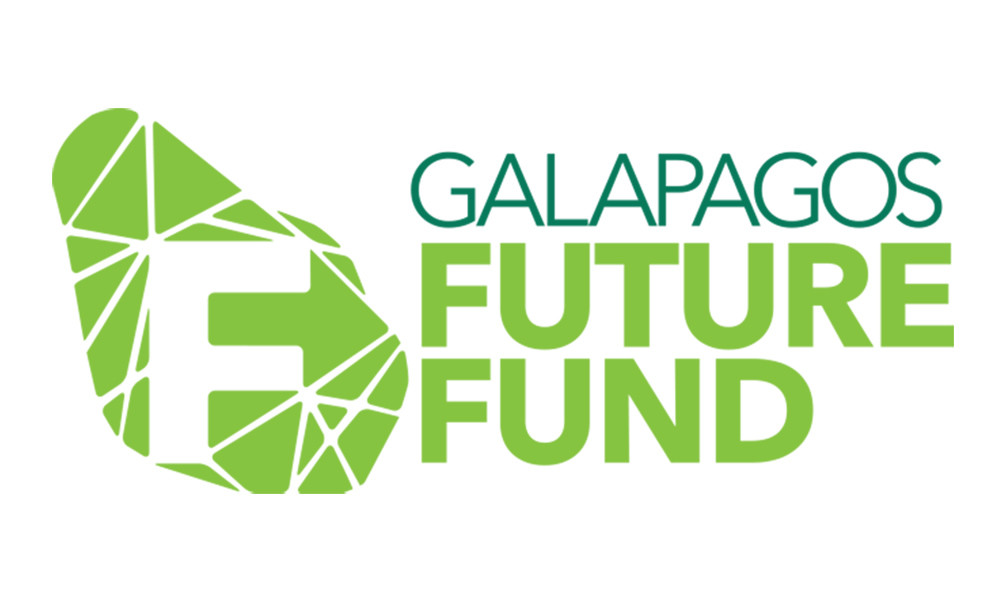
Related articles

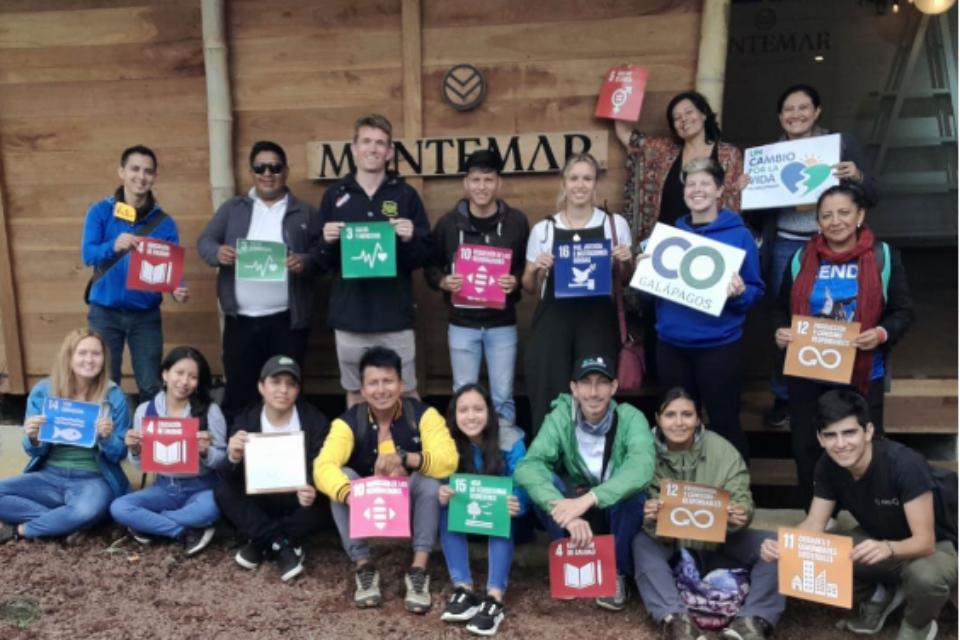
Co-Galapagos: Funding a Sustainable Future
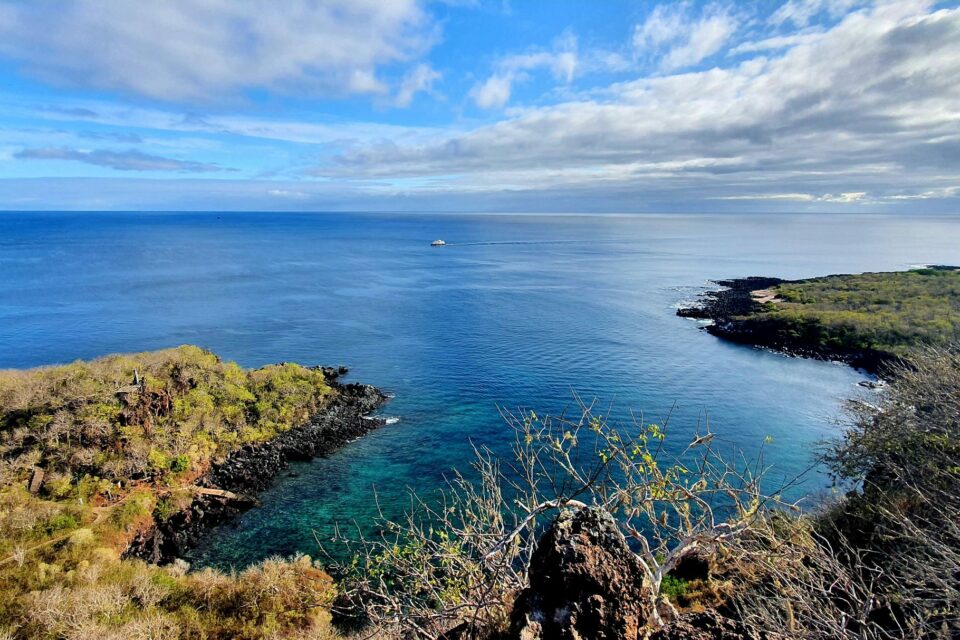
Co-Galapagos: helping Galapagos back to its feet after COVID-19
